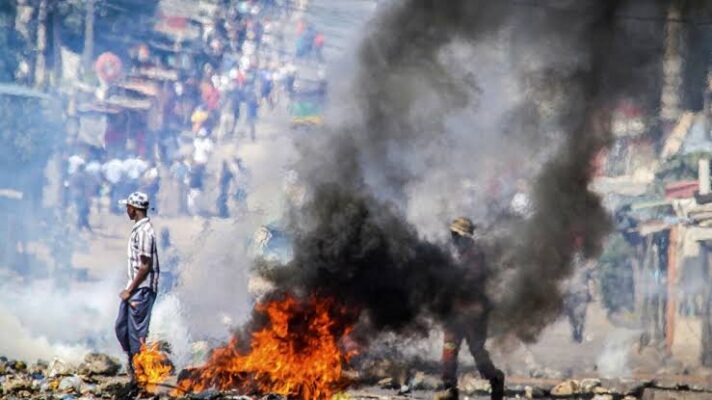Two days after the announcement of the election result in Mozambique, the situation in the south-eastern African country is escalating.
At least 121 people have died in protests since Monday, the civil society organisation Plataforma Decide said late on Wednesday.
Earlier in the day, the organisation had reported 56 dead and 380 injured.
The capital Maputo, as well as the cities of Beira and Nampula, are particularly affected, it said.
Mozambique’s interior minister had spoken of 21 dead and 25 injured on Tuesday evening.
The unrest began after the Constitutional Council confirmed on Monday that Daniel Chapo, the candidate of the Mozambique Liberation Front (FRELIMO) party, which has been in power for 49 years, won the presidency with 65 per cent of the vote.
Opposition leader Venâncio Mondlane, who reportedly received 24 per cent of the votes, rejected the result, saying it was manipulated.
He announced in a speech via Facebook that he would declare himself president on Jan. 15.
He has been abroad since the unrest began after the election in October.
In Maputo and other cities, shops were looted, vehicles and buildings, including police stations and FRELIMO party headquarters, were set on fire.
According to the police, demonstrators stormed five prisons.
A total of 1,534 inmates were reportedly freed from the high-security prison Matola in Maputo alone, 33 of whom were killed in clashes with the police.
It was claimed that the attackers also seized weapons.
Dozens of inmates also escaped from other prisons.
The protests are paralysing public life: In Maputo, demonstrators erected roadblocks, destroyed power pylons and robbed banks, a dpa reporter on the ground said.
Many residents of the capital stayed at home on Christmas Day, fearing attacks.
The government is deploying special military and border guard forces alongside the police.
The situation remains tense with opposition leader Mondlane urging his supporters to protest peacefully.
The Foreign Ministry of neighbouring South Africa called on the conflicting parties to engage in political dialogue and offered support for mediation.
Approximately 35 million people live in Mozambique, many of whom suffer from poverty, mismanagement, and the effects of climate change.
The FRELIMO party has governed the former Portuguese colony since 1975. Regular elections have been held since 1994. (dpa/NAN)









